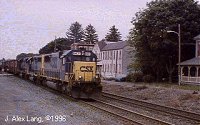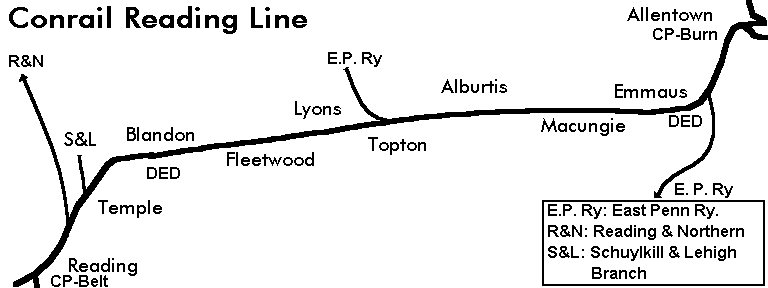|
Allentown, Pennsylvania lies in the heart of the Lehigh Valley,
hosting a great deal of Conrail action on its Lehigh and Reading
lines. Peter McGilligan and I ventured from Allentown west to
Reading PA on an average Monday morning in the midsummer of 1996.
Our first catch of the day was ALHB-3, departing CP-Burn at 9:00am.
Usually, this train awaits the passing of priority train Mail-3 before
beginning its pseudo-local freight trip to Harrisburg. Behind
the power is a long string of pneumatic-dump ballast cars, owned by
Wimpey Minerals of Annville PA (where I go to college!). These WIMX
cars are often run empty from Wimpey's transloading terminal (in Camden
NJ) on this train. ALHB was shot from the Susquehanna Street Bridge
on the South Side of Allentown, an advantageous photo locale for
westbound CR action. In the background, Allentown's landmark
UGI Gas tank can be seen, as well as the copper roof of the old
A&B meat plant downtown.
|
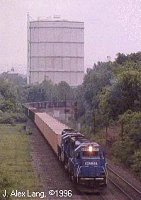
|

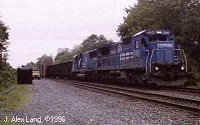
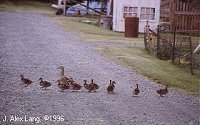 Here is a family of ducks in the town of Bowers, just east of Lyons.
Here is a family of ducks in the town of Bowers, just east of Lyons.
